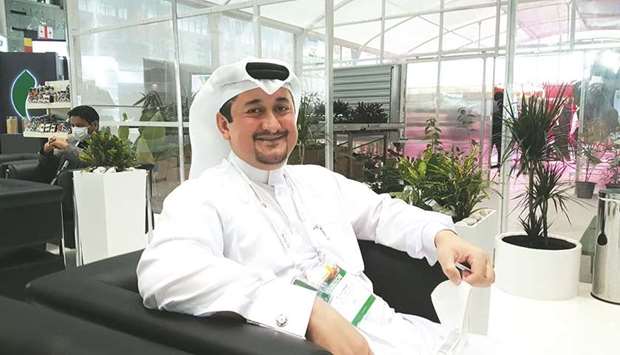With a relatively longer summer in Qatar this year, residents may find it difficult to get locally produced vegetables, especially tomatoes, at supermarkets until December, it is learnt.
“Since end of April most farms (in the country) stop producing. Normally production stops in the summer and our summer is quite long – from April to September – so almost six months,” prominent Qatari agriculturist Nasser Ahmed al-Khalaf told Gulf Times.
He said many local farms normally start harvesting tomatoes in December when temperatures start to subside in the country and the region.
It is learnt that many residents relied more on imported tomatoes from different countries and those produced by Agrico (a private Qatari agricultural development company established in 2011 that produces fresh vegetables year-round), in the past few months.
Al-Khalaf, who is also the founder and managing director of Agrico, noted that vegetable and dairy production in the country remained unaffected by the Covid-19 pandemic.
About upcoming agricultural projects, he said that one investor has started developing his land to help further boost food security and self-sufficiency efforts in Qatar. Nine other lands/areas provided by the Qatar government are also expected to be cultivated to become active farms, al-Khalaf added.
Agrico, al-Khalaf said, will also start producing shrimp early next year followed by egg production – all part of its plan to expand its operations: an annual production of 6,000 tonnes of mixed vegetables, 350 tonnes of shrimp, 350 tonnes of tilapia fish, and 36mn eggs.
"We will have the first harvest of shrimp by early 2022, we are expecting a 350-tonne annual production almost 1tonne per day. We will start with the tilapia production by end of 2022," he said.
Apart from venturing into aquaponics, he said the company will also continue developing several other farms across the country aimed at increasing local production to meet the local demand.
"There are many efforts from the public and private sectors to increase local production and we have seen this increase in the past few years," al-Khalaf added.
“Since end of April most farms (in the country) stop producing. Normally production stops in the summer and our summer is quite long – from April to September – so almost six months,” prominent Qatari agriculturist Nasser Ahmed al-Khalaf told Gulf Times.
He said many local farms normally start harvesting tomatoes in December when temperatures start to subside in the country and the region.
It is learnt that many residents relied more on imported tomatoes from different countries and those produced by Agrico (a private Qatari agricultural development company established in 2011 that produces fresh vegetables year-round), in the past few months.
Al-Khalaf, who is also the founder and managing director of Agrico, noted that vegetable and dairy production in the country remained unaffected by the Covid-19 pandemic.
About upcoming agricultural projects, he said that one investor has started developing his land to help further boost food security and self-sufficiency efforts in Qatar. Nine other lands/areas provided by the Qatar government are also expected to be cultivated to become active farms, al-Khalaf added.
Agrico, al-Khalaf said, will also start producing shrimp early next year followed by egg production – all part of its plan to expand its operations: an annual production of 6,000 tonnes of mixed vegetables, 350 tonnes of shrimp, 350 tonnes of tilapia fish, and 36mn eggs.
"We will have the first harvest of shrimp by early 2022, we are expecting a 350-tonne annual production almost 1tonne per day. We will start with the tilapia production by end of 2022," he said.
Apart from venturing into aquaponics, he said the company will also continue developing several other farms across the country aimed at increasing local production to meet the local demand.
"There are many efforts from the public and private sectors to increase local production and we have seen this increase in the past few years," al-Khalaf added.


